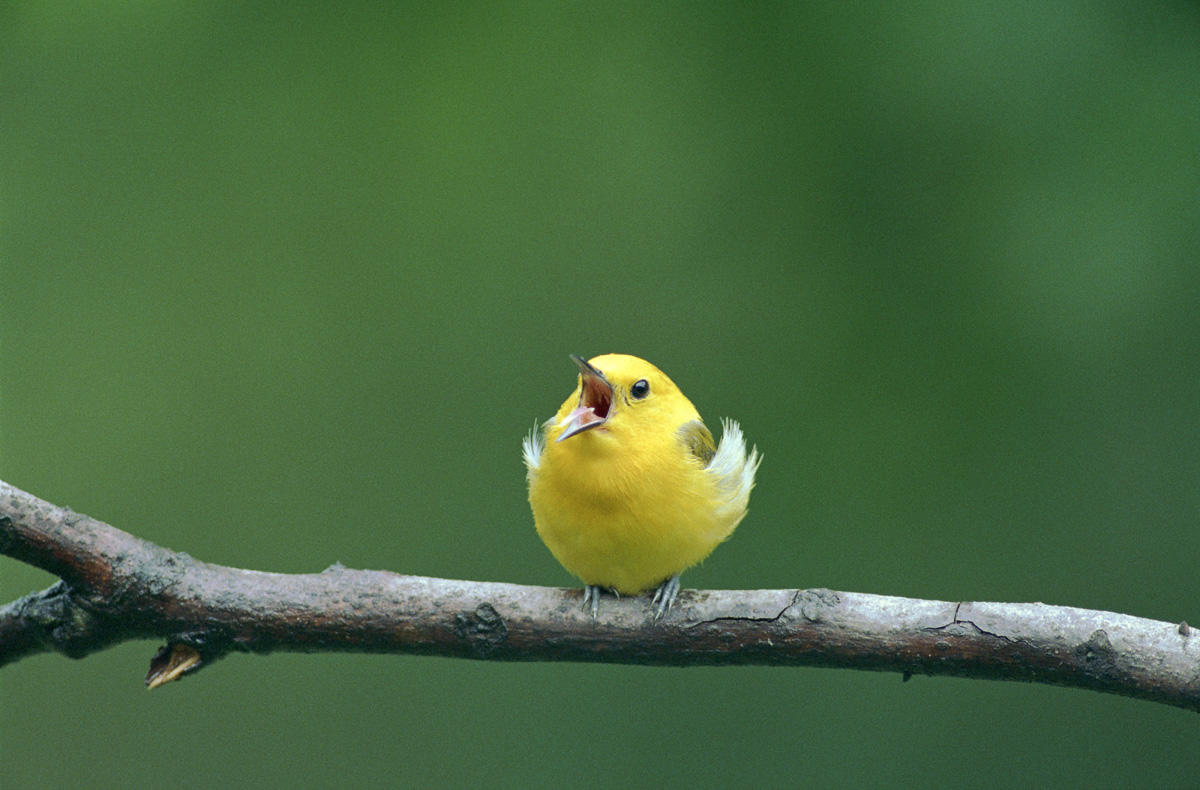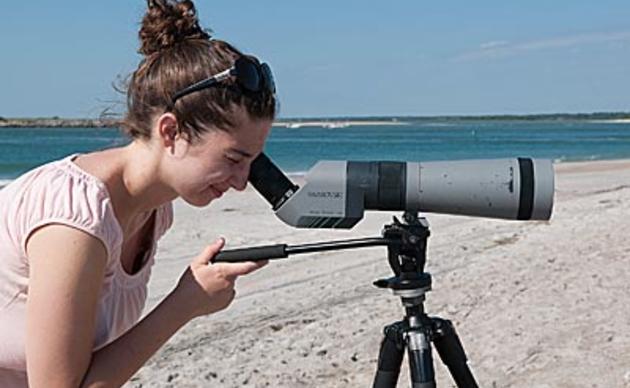North America’s birds are and will continue to be affected by the impact of climate change on their existing and future habitats. Many species that breed, nest, migrate or winter in North Carolina are among those at risk. According to a landmark study released by The National Audubon Society, Brown-headed Nuthatches, American Oystercatchers, Golden-winged Warblers, and hundreds of other species will be threatened or endangered in our children’s lifetime.
Of the 588 continental United States and Canadian bird species examined in the seven-year study, 314 species are at risk. Of those, about 1 in 5, 126 species, are at risk of severe declines by 2050, and a further 188 species face the same fate by 2080, with numerous extinctions possible if global warming is allowed to erase the havens birds occupy today. Just like the canaries in the coal mines, these birds are sounding the alarm that it’s time for people to act before it’s too late.
In North Carolina, citizens have a unique opportunity to protect a wide range of bird species threatened by climate change from the mountains to the piedmont to the coastal plain. Audubon NC scientists are integrating the report results into existing conservation programs and projects to support birds through conservation of crucial habitat.
Audubon Chief Scientist Gary Langham and other Audubon ornithologists analyzed more than 40 years of historical North American climate data and millions of historical bird records from the U.S. Geological Survey’s North American Breeding Bird Survey and the Audubon Christmas Bird Count to understand the links between where birds live and the climatic conditions that support them. Understanding those links then allows scientists to project where birds are likely to be able to survive – and not survive – in the future.
Audubon's study shows how climate conditions including rainfall, temperature and humidity – the building blocks for ecosystems and species survival – may have catastrophic consequences when tipping those balances.
While some species will be able to adapt to shifting climates, many of North America’s most familiar and iconic species will not. Here is what you can do right now to help:
- Pledge to protect the North Carolina birds you love.
- Learn more about Audubon’s report on climate change and how you can get involved to protect North America’s birds.
- Click here for media resources, including an animation introducing the science, video interviews and more.
- Follow Audubon North Carolina State Director Heather Hahn on Twitter to get the latest information.
- Learn more about the conservation programs already in place in North Carolina to protect our birds.
- Sign-up for our NC Action Alert network to stay informed as we implement plans to save the strongholds birds will need to survive the impact of climate change in our state.
This study is just the start of a continuing work focus on climate change impacts on birds in North Carolina. Stay tuned to our Facebook page, eNewsletter and special eBulletins to learn how you can be involved.
See who's talking about the Audubon Climate Report:
How you can help, right now
Donate to Audubon
Help secure the future for birds at risk from climate change, habitat loss and other threats. Your support will power our science, education, advocacy and on-the-ground conservation efforts.
Sign Up For Our eNewsletter
Keep up-to-date on all that happens with Audubon North Carolina's research, events and volunteer opportunities.





